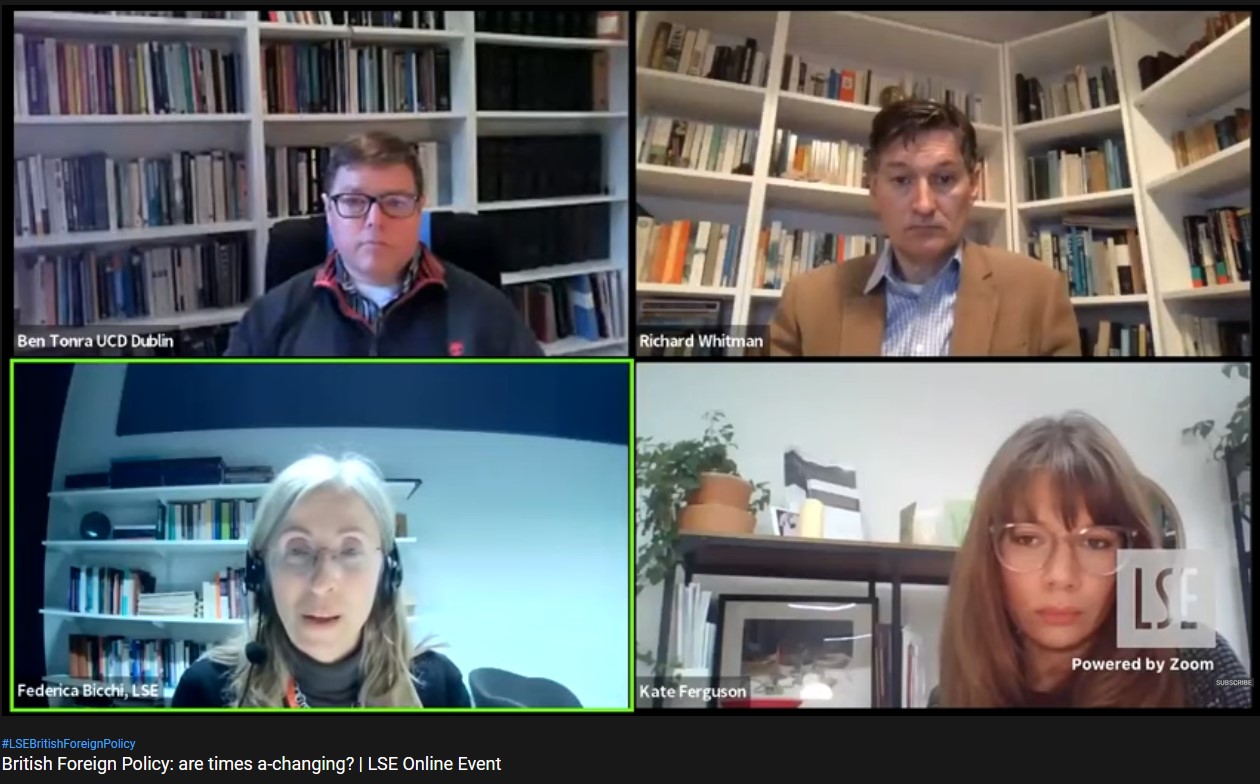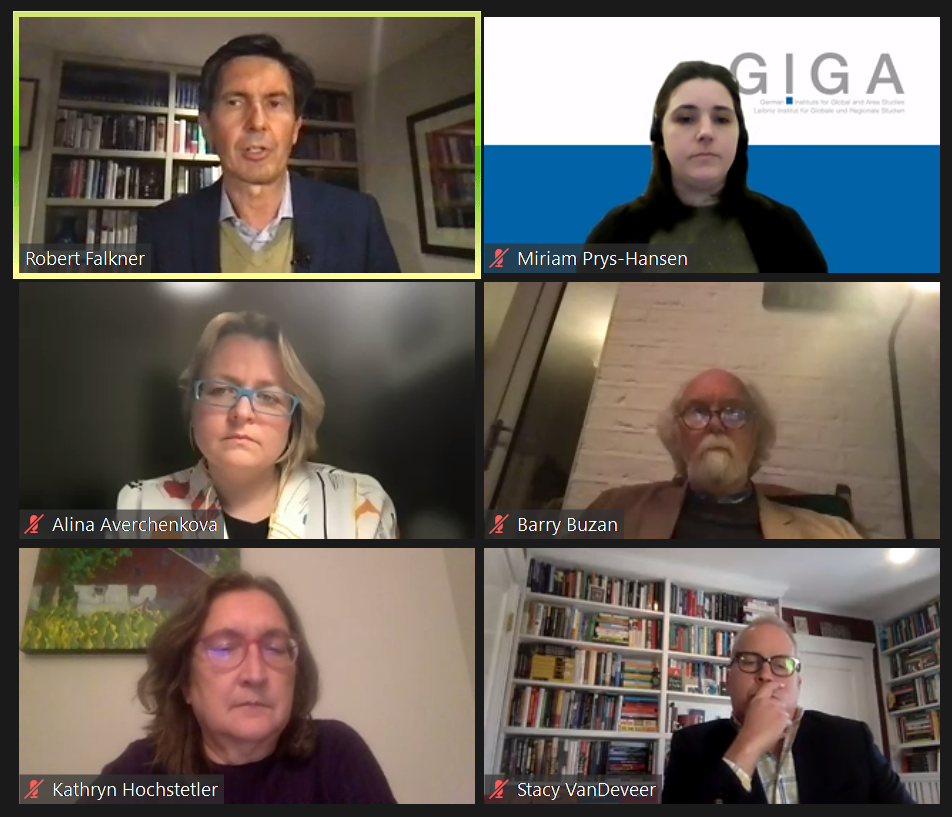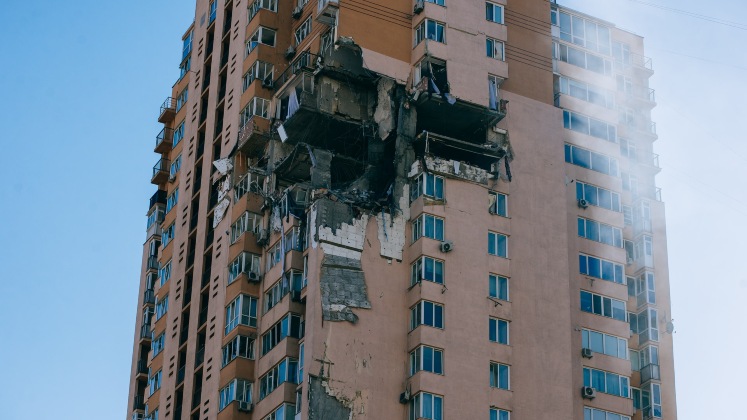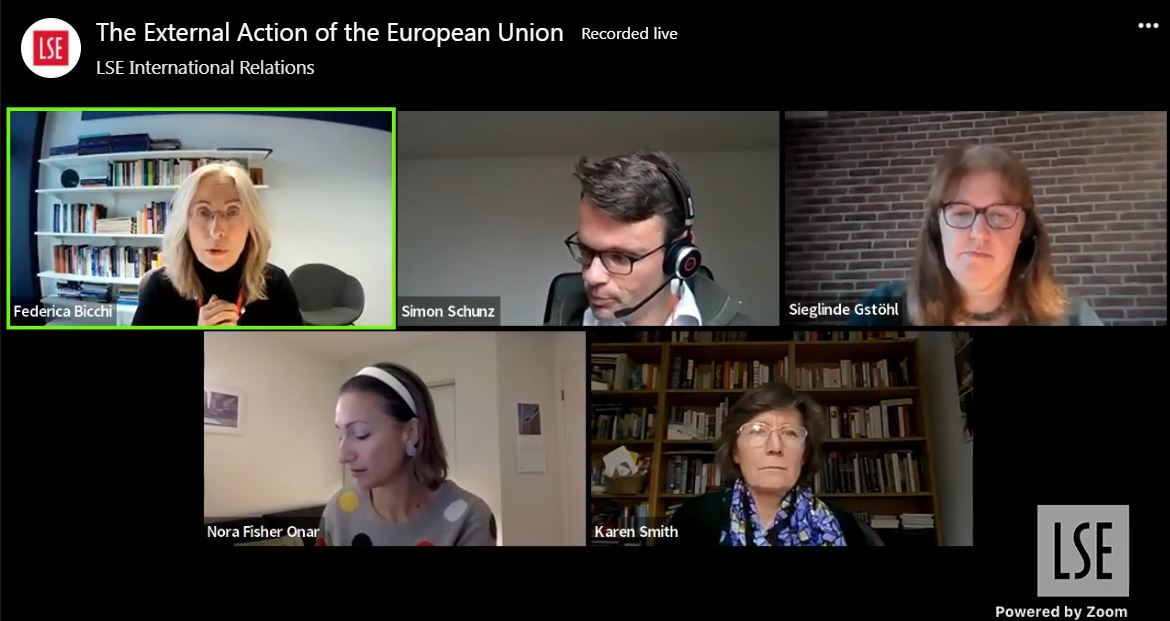 On Friday 4 March 2022, the Department of International Relations held an online event for students and faculty to discuss the causes and implications of the recent Russian invasion of Ukraine. The panellists include the Department members Tomila Lankina, Nikhil Kalyanpur, Peter Trubowitz, Luca Tardelli, Karen Smith, Sinja Graf, Theresa Squatrito, and Mathias Koenig-Archibugi. Each faculty member brought their own expertise to bear on a particular aspect of the conflict.
On Friday 4 March 2022, the Department of International Relations held an online event for students and faculty to discuss the causes and implications of the recent Russian invasion of Ukraine. The panellists include the Department members Tomila Lankina, Nikhil Kalyanpur, Peter Trubowitz, Luca Tardelli, Karen Smith, Sinja Graf, Theresa Squatrito, and Mathias Koenig-Archibugi. Each faculty member brought their own expertise to bear on a particular aspect of the conflict.
The mood during the discussion was a mix between optimism and pessimism.
The conversation started with a discussion of the cause of the Russian invasion. Professor Tomila Lankina explained the domestic situation in Russia that made it conducive for Putin to declare war while Professor Peter Trubowitz considered the cause of the invasion from a more international perspective. Dr Nikhil Kalyanpur and Dr Luca Tardelli homed in on the effects and implications of the current sanction regimes on Russia. Dr Tardelli also discussed the role that NATO played in the conflict. In terms of international organisations, Professor Karen Smith looked at the EU’s responses and Dr Mathias Koenig-Archibugi talked about the activities that were unfolding in the UN. Finally, Dr Sinja Graf and Dr Theresa Squatrito looked at the implications of the invasion from an international law perspective and what Dr Squatrito called the “weaponisation of law”.
The mood during the discussion was a mix between optimism and pessimism. Panellists were impressed with the level of unity, speed and coherence of the responses by western countries to the invasion, especially by NATO and the EU. On the other hand, most are worried about the risk of escalation between NATO and Russia, and feared that the situation can only get worse for Ukraine from here on.
After the panellists made their presentations, the floor was opened for students and participants to ask questions. As there were over 160 people who attended the event, a polling app called Slido was used where participants can vote on the questions that they wanted to be answered most. At the top of the list, attendees were most interested in the prospect of the use of nuclear weapons. Other topics that people were curious about were the role that China could or would play in the conflict and why there was such a discrepancy between the response given to Ukraine as opposed to the American invasion of Iraq. The event was capped off with a final discussion by Professor Trubowitz on what the West could do moving forward.
Attendees were most interested in the prospect of the use of nuclear weapons.
Overall, the event provided the attendees with a broad range of views from which to think about the Russian invasion of Ukraine. It obliged us to consider the complexity and nuances of the actors involved, both states and international organisations, the broad range of responses we had seen, and the possible implications and pathways that the conflict can evolve. The discussion and the insights of the panellists were timely and valuable.
Event report by Pham Q. Dung (Jay), MSc in International Relations (Research)

Banner photo by Julia Rekamie on Unsplash





